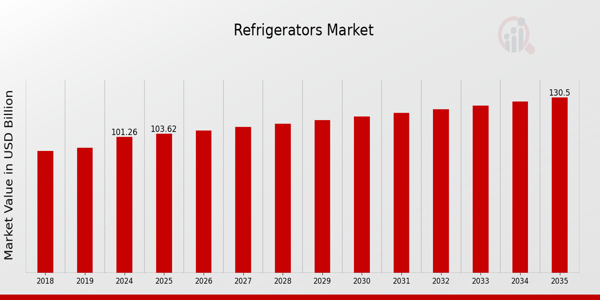Premium Trends Reshaping the Future of Refrigerator Sales

The Refrigerators Market is rapidly evolving, influenced by sustainability demands, technological progress, and shifting consumer lifestyles. As climate awareness and rising energy costs push consumers to adopt more efficient appliances, manufacturers are prioritizing eco-friendly materials and reduced power consumption.
One of the most significant factors fueling growth is the rising demand for energy-efficient refrigerators. These models not only lower electricity bills but also align with global carbon reduction goals. Governments worldwide are introducing stricter regulations and energy labeling requirements, compelling brands to innovate and meet higher efficiency benchmarks.
In addition to performance, sustainability is influencing the design and construction of refrigerators. Lightweight materials, eco-friendly coolants, and modular repair systems are being promoted to prolong product lifecycles. Consumers are particularly receptive to appliances that strike a balance between affordability, efficiency, and aesthetics.
Global e-commerce platforms and retail availability amplify this trend by allowing buyers to compare efficiency ratings and certifications, empowering sustainable choices. This shift also encourages competition among manufacturers investing heavily in R&D to deliver differentiated models with smart functionality and green credentials.
As sustainability becomes intertwined with consumer trust, energy-efficient refrigerators will remain a cornerstone of future growth. Their relevance ensures they will continue driving innovation and shaping the broader outlook of the refrigerators industry worldwide.
Urban homeowners and younger buyers, in particular, value multifunctional devices that integrate seamlessly with smartphones and home automation systems. This demographic drives demand for refrigerators offering voice assistant control, app-based maintenance alerts, and predictive system diagnostics.
The luxury appliance market has also benefitted, with premium brands delivering sleek, technology-heavy models positioned as lifestyle symbols. Meanwhile, mid-range manufacturers continue to bring connected features into more accessible formats, broadening market penetration.
Looking ahead, smart refrigeration is expected to benefit from advancements in AI and IoT, enabling even more personalized, sustainable, and remote-controlled performance. As homes become smarter, refrigerators will remain a centerpiece of innovation in connected living.
Emerging economies are playing a pivotal role here too. Rising disposable income, rapid urbanization, and stronger supply chain networks are increasing demand for both small-scale restaurant-level systems and large cold-chain logistics facilities.
Innovation remains a competitive differentiator within this segment. Smart monitoring, eco-friendly coolants, and systems that optimize temperature with minimal energy waste are revolutionizing commercial refrigeration. Companies investing in durability and real-time digital monitoring gain significant customer loyalty.
Given its essentiality, commercial refrigeration will continue to anchor long-term growth in the industry. It ensures that food security, efficiency, and reliable preservation remain at the forefront of global economic activity.
- Art
- Causes
- Crafts
- Dance
- Drinks
- Film
- Fitness
- Food
- Games
- Gardening
- Health
- Home
- Literature
- Music
- Networking
- Other
- Party
- Religion
- Shopping
- Sports
- Theater
- Wellness

